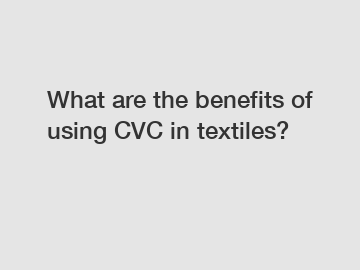Benefits of Agriculture Non Woven Fabric for Sustainable Farming
Agriculture is rapidly evolving, with an increasing focus on sustainability and efficiency. One innovative solution gaining traction in the agricultural sector is non-woven fabric, which has shown significant advantages over traditional materials in various applications. This article delves into the various benefits of agriculture non-woven fabric, highlighting its essential features and applications that enhance sustainable farming practices.
If you are looking for more details, kindly visit Agriculture Non Woven Fabric.
One of the primary benefits of agriculture non-woven fabric is its excellent water permeability. These fabrics are designed to allow water and air to pass through, promoting efficient irrigation while preventing soil erosion. The breathable nature of non-woven fabrics ensures that crops receive adequate moisture without the risk of waterlogging. This feature is particularly beneficial in regions where water conservation is critical, allowing farmers to optimize their irrigation practices and reduce water usage.
In addition to water management, agriculture non-woven fabric plays a crucial role in weed control. By acting as a physical barrier over the soil, these fabrics impede weed growth while permitting sunlight to penetrate, fostering healthy plant development. This natural form of weed suppression reduces the need for chemical herbicides, aligning with sustainable farming practices that prioritize environmental health. As a result, farmers can achieve higher yields with less chemical input, contributing to both economic and ecological benefits.
Another significant advantage of non-woven fabrics is their durability and strength. Unlike traditional fabric options, non-woven materials are engineered using specific fibers that enhance their tensile strength—making them resistant to tearing and degradation over time. This durability ensures that non-woven landscapes can withstand harsh weather conditions and mechanical stresses, offering a longer lifespan and lower replacement costs. Farmers can thus invest in non-woven solutions with confidence, knowing they will provide reliable performance year after year.
With competitive price and timely delivery, Glory Tang New Material sincerely hope to be your supplier and partner.
Recommended article:Textiles & Leather Products
How to Select Fire-Resistant Knitwear Material for Custom Designs?
10 Tips You Should Know about Sustainable Denim Production Practices
Flame Retardant Cloth Custom vs. Standard Fabric: What's Best?
How Does Sustainable Packaging Design Work?
Is Artificial Leather Sustainable? The Truth Revealed
7 Benefits of Pure Cotton Flame Retardant Fabric You Need to Know
The versatility of agriculture non-woven fabric extends to various applications, from crop covers to seedling protection. For instance, these fabrics can be used to shield young plants from frost and pests while allowing sunlight and moisture to penetrate. This protective feature enhances plant growth and resilience, resulting in healthier crops and higher market value. Additionally, non-woven fabrics can be customized to suit specific needs, such as varying thicknesses and UV resistance, providing tailored solutions for different agricultural contexts.
Non-woven fabrics also contribute to better soil structure and fertility. When used as mulch, they help maintain soil temperature and moisture levels, which is vital for root development. This improved soil environment promotes beneficial microbial activity, leading to enhanced nutrient availability for plants. By fostering healthier soil ecosystems, agriculture non-woven fabric supports sustainable farming practices that prioritize soil health and fertility for long-term agricultural productivity.
As we look to the future of farming, the integration of advanced materials like non-woven fabric will become increasingly important in addressing environmental challenges and enhancing productivity. With ongoing innovations in fabric technology and sustainable practices, farmers will have access to even more effective tools to support their operations. Transitioning to agriculture non-woven fabric is not just a choice for improved efficiency; it is a commitment to fostering a more sustainable agricultural landscape.
In conclusion, the benefits of agriculture non-woven fabric are manifold, encompassing efficient water use, effective weed control, durability, versatility, and improved soil health. It provides practical solutions that can enhance farming efficiency and sustainability. As agricultural challenges continue to evolve, embracing such innovative materials will be essential for the future of sustainable farming. Farmers and stakeholders in the agricultural sector are encouraged to explore the potential of non-woven fabrics to transform their practices for a more sustainable and productive future.
Glory Tang New Material supply professional and honest service.
Recommended article:4 Tips to Select Fire-Resistant Woven Fabrics for Building Projects
How Fireproof Woven Fabric Custom Could Revolutionize Safety?
Artificial Leather vs. Real Leather: Which is Better for Apparel?
10 Reasons to Choose Artificial Leather for Your Furniture
Ending the Leather Dilemma: Why Artificial Leather for Bags is Your Sustainable Solution!
Functional PVC Covers: Top 7 Benefits You Need to Know!
Protect Your Goods: Benefits of Waterproof Pallet Cover Tarps





